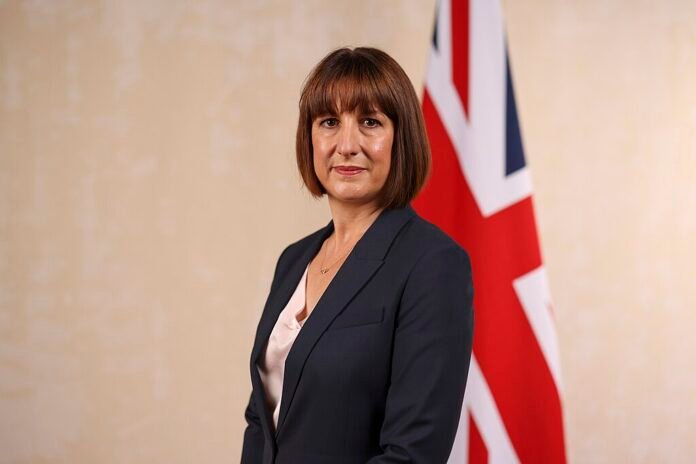Record January surplus falls short of forecasts, forcing reeves into tough tax and spending choices
Chancellor Rachel Reeves is facing mounting pressure after the UK government’s January budget surplus failed to meet expectations, raising fears of tax hikes or spending cuts in the upcoming financial update.
The government reported a £15.4bn surplus—the highest for any January since records began over 30 years ago. However, this figure fell drastically short of the £20.5bn forecast by the Office for Budget Responsibility (OBR). The shortfall has intensified scrutiny of Reeves’ commitment to her self-imposed fiscal rules, which require day-to-day spending to be covered by tax revenue and government debt to decline as a percentage of national income by 2029/30.
With the Spring Forecast set for 26 March, all eyes are on the OBR’s latest projections. Last October, the watchdog estimated Reeves had £9.9bn in “headroom” to meet her fiscal targets. But weak economic growth and rising borrowing costs have eroded that cushion, sparking speculation that the Chancellor may be forced into politically damaging decisions.
Analysts warn that Reeves faces an unenviable dilemma. The Resolution Foundation’s senior economist, Cara Pacitti, has suggested that sticking to fiscal rules may require either higher taxes or spending cuts. Reeves has ruled out further tax increases or additional borrowing, making spending reductions the more likely route.
Embed from Getty ImagesGovernment departments have already been instructed to submit detailed reports identifying potential savings, hinting that Treasury officials are bracing for spending restraint.
The government insists its fiscal rules are “non-negotiable.” Treasury Chief Secretary Darren Jones reaffirmed this stance on Friday, despite growing concerns over whether Reeves can uphold them without drastic action.
Shadow Chancellor Mel Stride has used the latest figures to criticise Labour’s economic management, blaming “reckless policies” for the worsening financial outlook. Meanwhile, the Institute for Fiscal Studies (IFS) has cautioned that monthly borrowing figures often fluctuate and could be revised.
Still, the overall trend remains concerning. Between April 2024 and January 2025, the government borrowed £118.2bn—£11.6bn more than during the same period last year and £12.8bn higher than initial OBR forecasts.
Isabel Stockton, a senior economist at the IFS, has warned that increased short-term borrowing, combined with future fiscal tightening, could force the government into harsher spending plans or even tax rises. She also noted additional pressures from the need to increase defence spending amid the ongoing Ukraine conflict.
Meanwhile, HSBC’s senior UK economist Liz Martins described the borrowing figures as “a little bit worrying,” suggesting the OBR may conclude that current financial trends are unsustainable, forcing the government to reconsider its tax and spending strategies.
Despite the record surplus, the government’s weaker-than-expected tax receipts signal underlying economic fragility. The OBR has attributed the shortfall to lower self-assessed tax returns and rising debt interest costs. Additionally, spending on public services, benefits, and interest payments has surged compared to last year.
Retail data adds to the mixed economic picture. While food sales rebounded in January, clothing and household goods sales remained sluggish, reflecting ongoing weak consumer confidence.
With uncertainty looming over the Spring Forecast, Reeves must navigate treacherous economic waters. Will she hold firm on her fiscal rules, risking austerity-like cuts, or make a politically explosive U-turn on taxes? The answer could shape Labour’s economic reputation for years to come.
THE GUARDIAN
Chancellor Rachel Reeves received a £15.4bn boost to public finances in January, the highest surplus on record but below the £20bn forecast. The shortfall, driven by weaker self-assessment and capital gains tax receipts, adds pressure as Reeves prepares for her 26 March spring statement.
Labour’s fiscal rules limit borrowing, forcing Reeves to consider spending cuts to fund defence commitments. Treasury officials are reviewing expenditures “line by line,” raising concerns among Labour MPs that investment pledges may be scrapped and welfare tightened.
Economic uncertainty compounds Reeves’ challenges. UK growth forecasts have been halved to 0.75%, while rising debt costs further strain public finances. Meanwhile, mixed business and retail data paint an unclear economic picture.
With borrowing at £118.2bn for the financial year and mounting spending demands, Reeves must navigate a tough fiscal landscape while balancing Labour’s investment promises against economic realities.
SKY NEWS
Chancellor Rachel Reeves is under growing pressure to raise taxes or cut spending as government borrowing proves more expensive than expected. January’s £15.4bn surplus—the highest since records began—was below forecasts, while overall borrowing for the financial year hit £118.2bn, exceeding the OBR’s £105.4bn projection.
Market jitters last month saw government borrowing costs soar, limiting Reeves’ fiscal flexibility. Economists warn her fiscal headroom has likely vanished, making tax hikes or spending cuts inevitable. Analysts expect spending reductions in March, with tax increases potentially following in the autumn.
Treasury officials insist they are reviewing spending “line by line” to maintain fiscal stability. With Reeves committed to reducing debt and balancing the budget by 2030, she faces tough choices ahead as economic pressures mount.
